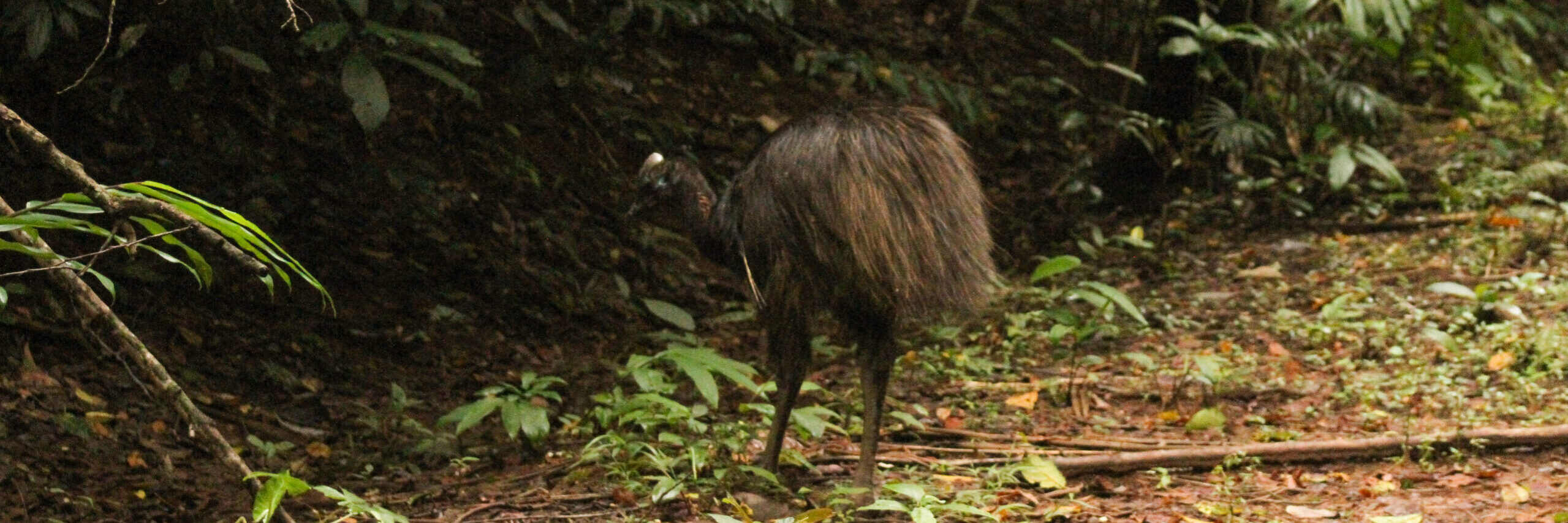The cassowary is released into the rainforest. Photo: Qld Department of Environment
A young male cassowary rescued from cane fields in far north Queensland has been restored to health and released to Wooroonooran National Park.
The Queensland Department of the Environment says that in March, they received multiple reports of a young cassowary wandering along roads among cane fields near Mourilayn.
Qld wildlife rangers found the bird to be in poor condition and its fresh scat showed it had been eating only non-native fruit.
Due to the location, its health condition and the risk of vehicle strike, the bird was captured and taken to the Cassowary Rehabilitation Centre at Garners Beach.
Click on the following to watch the bird’s release: no sound. (Footage supplied by Qld Department of Environment)
Senior wildlife ranger Alex Diczbalis says the juvenile male received daily care and feeding by Community for Coastal and Cassowary Conservation (C4) volunteers and its health improved rapidly.
“We’d like to thank the members of the public who took the time to report the cassowary to us and to the C4 volunteers for their dedication,” he says.
“After several weeks of care, which included feeding the bird native fruit collected from the roadside, the cassowary was assessed by local vet Dr Graham Lauridsen as being suitable for release back into the wild.”
Diczbalis says a site was found in the park with the dense rainforest, abundant native food and access to fresh water to give the cassowary a chance to establish a home range.
“On April 10, the cassowary was released into the rainforest and calmly explored its new surroundings,” he says.
“Recent site visits have confirmed that the cassowary is foraging well and fulfilling its vital role in seed dispersal and rainforest regeneration. We hope the cassowary will thrive and in time father its own chicks.”
To report a cassowary sighting or incident, call 1300 130 372.
BE CASS-O-WARY
- Southern cassowary behaviour is unpredictable; they can inflict serious injuries to people and pets with their large, clawed feet.
- Don’t approach cassowaries; it’s best to appreciate them from a distance.
- Never approach chicks – male cassowaries will defend them.
- Don’t feed cassowaries – it is illegal, dangerous and causes cassowary deaths.
- Discard food scraps in closed bins and ensure compost bins have secure lids.
- Slow down and keep an eye out when driving on roads in cassowary habitat.
- Do NOT park your vehicle near cassowaries; they may think you’ve stopped to feed them.
- Keep dogs behind fences or on a leash.
Source: Qld Department of the Environment





